Table of Contents
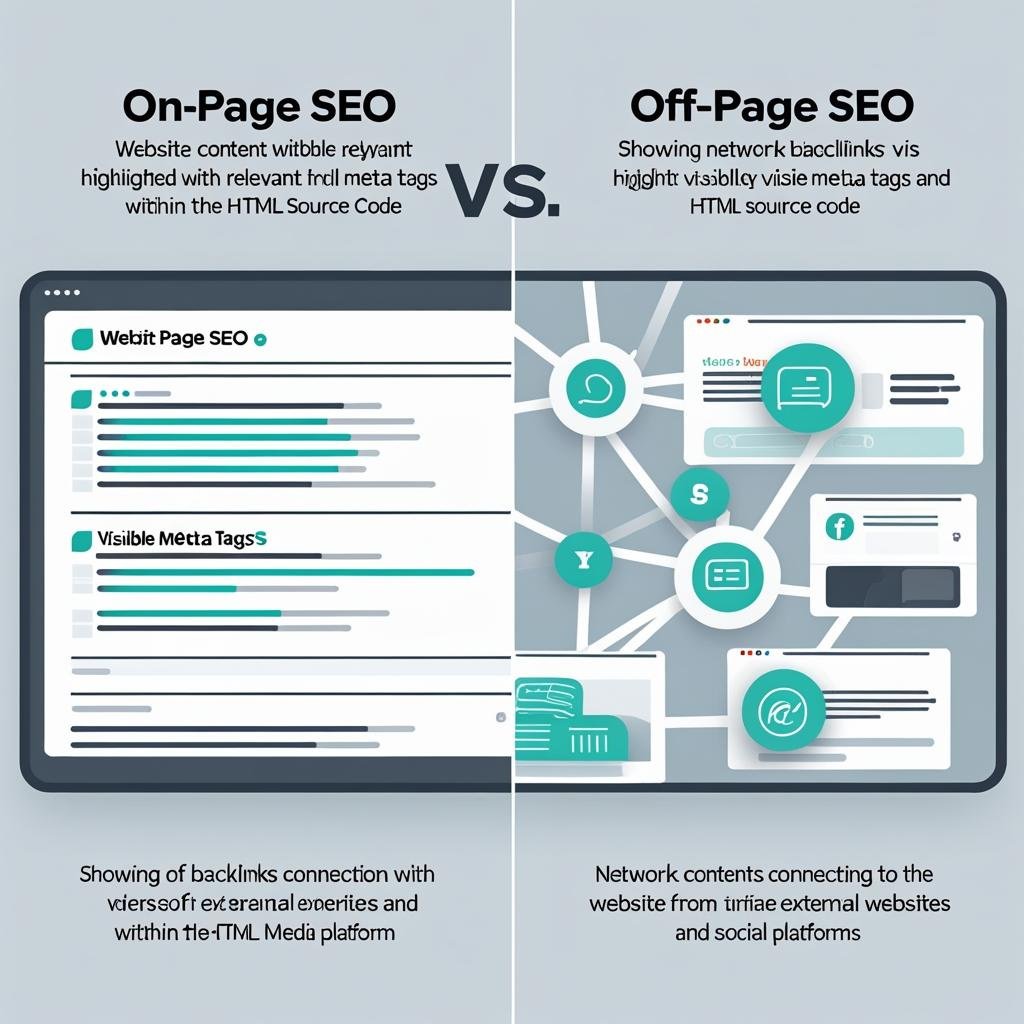
1. Introduction to SEO Fundamentals On-Page SEO vs Off-Page SEO
On-Page SEO vs Off-Page SEO Search Engine Optimization (SEO) is the practice of optimizing your website to appear higher on search engines like Google. On-Page SEO vs Off-Page SEO There are two core parts to SEO:
- On-Page SEO: What you do on your site
- Off-Page SEO: What others do off your site to help it
Understanding the difference between these two is critical for anyone who wants to boost website traffic, improve visibility, and rank higher on search engine result pages (SERPs).
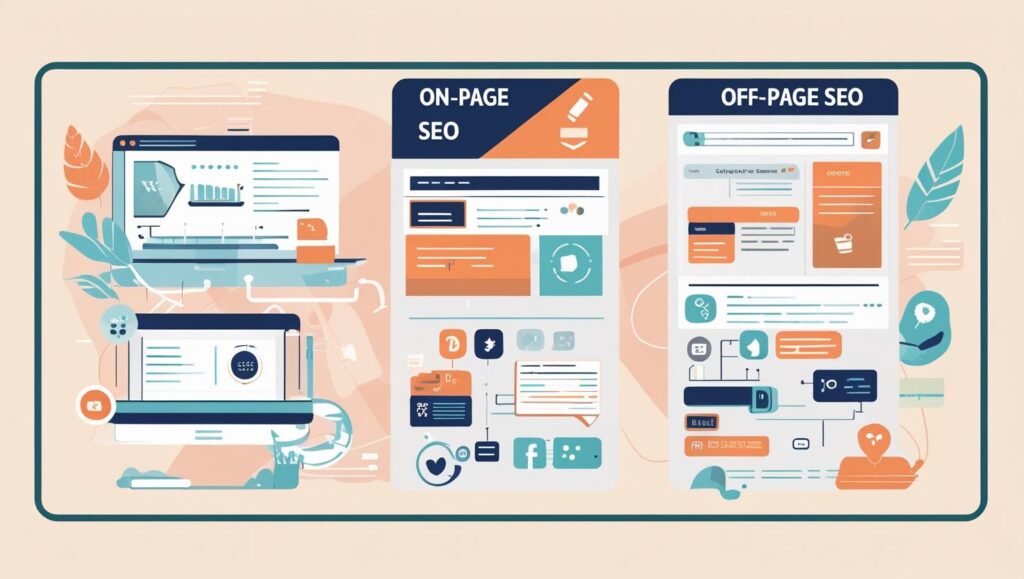
2. What is On-Page SEO vs Off-Page SEO?
On-Page SEO vs Off-Page SEO refers to all the internal actions you take to optimize a page for search engines and users. It helps search engines understand your content and index it properly.
Key On-Page SEO Elements:
- Title Tag: Must include the focus keyword
- Meta Description: Summarizes the page and encourages clicks
- Headings (H1, H2, etc.): Organizes content
- URL Structure: SEO-friendly URLs with keywords
- Content Quality: Original, valuable, and keyword-rich
- Image Optimization: Alt text and file compression
- Internal Linking: Connecting pages within your site
- Mobile-Friendliness: Responsive design
- Page Speed: Faster sites rank better
Example: If you’re writing about “healthy recipes,” you want that phrase in your title, H1, first paragraph, and image alt text On-Page SEO vs Off-Page SEO.
3. What is Off-Page SEO?
Off-Page SEO refers to all the external factors that influence your search engine ranking. It signals authority, trust, and relevance to search engines.
Key Off-Page SEO Techniques:
- Backlink Building: Getting other sites to link to yours
- Guest Blogging: Writing content on other websites
- Social Media Engagement: Shares and mentions
- Influencer Outreach: Getting endorsements
- Online Reviews & Brand Mentions: Builds reputation
- Forum & Community Participation: Quora, Reddit, etc.
Example: If a respected health blog links to your “healthy recipes” page, Google sees your content as trustworthy.
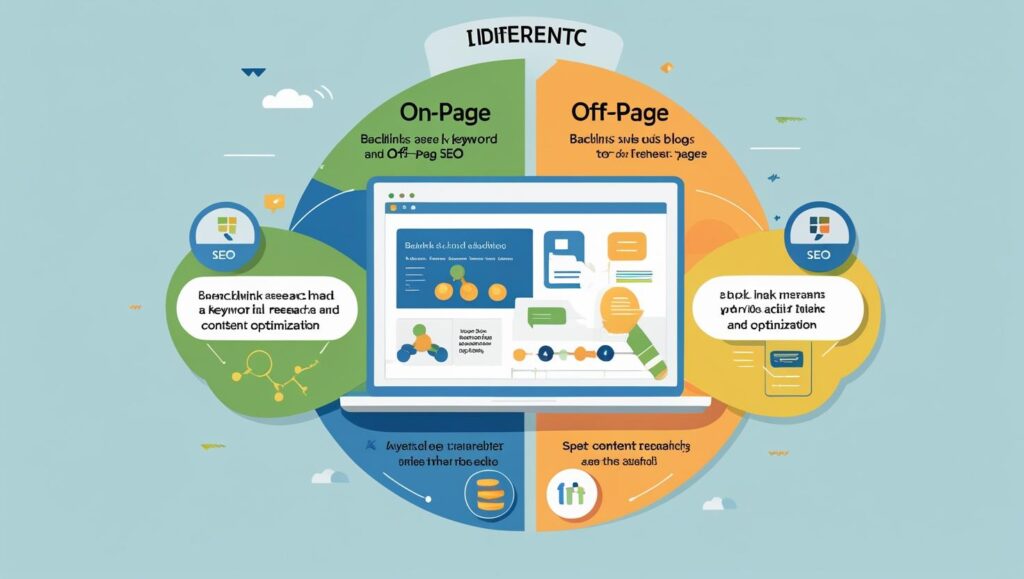
4. Key Differences Between On-Page and Off-Page SEO
| Feature | On-Page SEO | Off-Page SEO |
|---|---|---|
| Location | On your website | Outside your website |
| Control | 100% under your control | Mostly out of your control |
| Focus | Content and technical structure | Authority and popularity |
| Key Tactics | Keywords, content, structure | Backlinks, PR, social shares |
| Tools | Yoast SEO, Rank Math, Screaming Frog | Ahrefs, SEMrush, Moz |
| Measurement | Bounce rate, keyword ranking, page speed | Backlinks, domain authority, referral traffic |
Both are equally important—ignoring either can weaken your SEO efforts.
5. The Importance of On-Page SEO vs Off-Page SEO
Why You Need It:
- Helps search engines understand your content
- Makes your website user-friendly
- Improves click-through rate (CTR)
- Supports structured, high-quality content
Without on-page SEO, even the best backlinks won’t help if your site is a mess.
6. The Importance of Off-Page SEO
Why You Need It:
- Builds your site’s authority and credibility
- Improves Google trust signals
- Helps your pages rank higher faster
- Drives referral traffic and brand recognition
If no one’s talking about your content, Google assumes it’s not relevant.
7. Real-Life Examples
On-Page SEO vs Off-Page SEO Let’s say you run a fitness blog:
On-Page SEO:
- Use the keyword “home workouts for beginners” in the title.
- Include internal links to your diet and motivation blog posts.
- Optimize images with alt text like “morning stretch routine.”
Off-Page SEO:
- Get featured on a well-known health blog.
- Share posts on Reddit and Facebook fitness groups.
- Ask a YouTube fitness influencer to mention your blog.
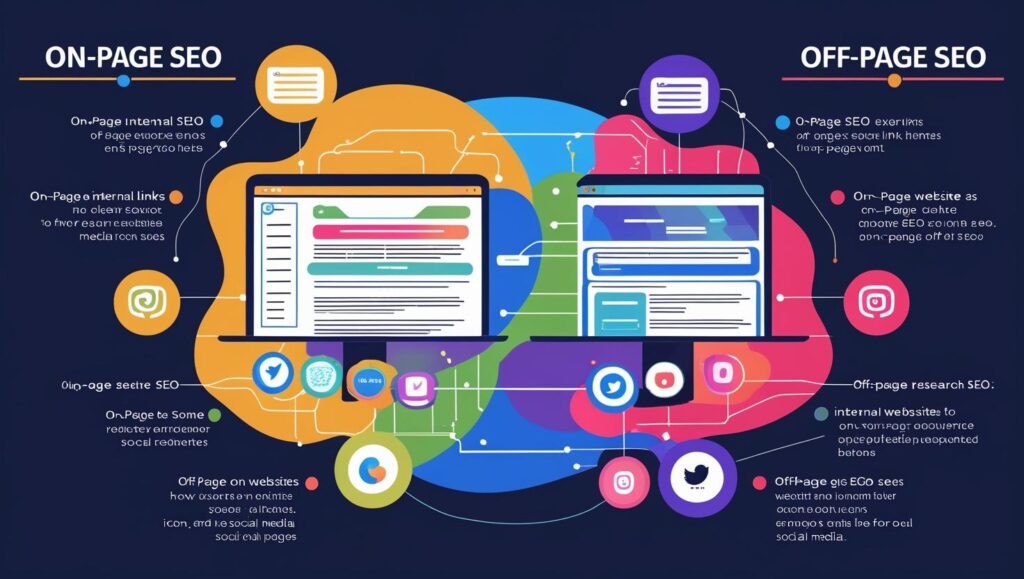
8. How On-Page and Off-Page SEO Work Together
On-Page SEO vs Off-Page SEO Think of SEO like a relationship:
- On-Page SEO is how you present yourself
- Off-Page SEO is what others say about you
You need both to build trust with search engines. Great content (on-page) helps you earn links (off-page), and links drive traffic to your content.
9. On-Page SEO Checklist
Use your focus keyword in:
- Title
- H1
- URL
- Meta description
- First 100 words
Structure content with headers (H2, H3)
Add internal links to related posts
Use outbound links to authoritative sources
Optimize all images with descriptive alt text
Write unique meta descriptions for each page
Improve page loading speed
Make your site mobile responsive
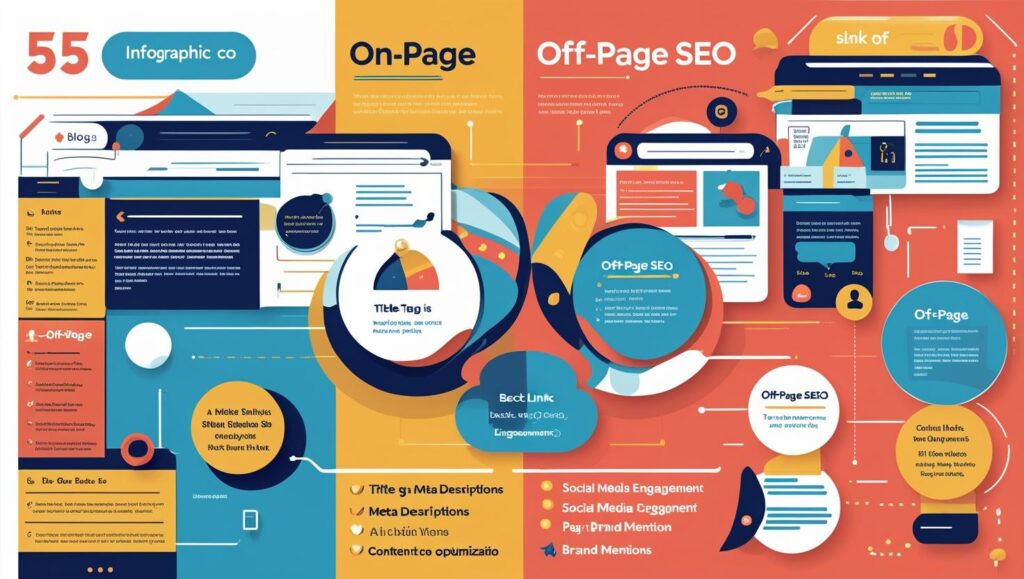
10. Off-Page SEO Checklist
Build backlinks from:
- Guest posts
- Resource pages
- Social bookmarking sites
- Influencers
Share content on:
- Facebook, Twitter, LinkedIn, Instagram
- Reddit, Quora, Pinterest
Monitor backlinks with Ahrefs or SEMrush
Respond to comments and engage in forums
Claim your business on Google My Business
Get online reviews and testimonials
Use HARO (Help A Reporter Out) for press mentions
11. Common Mistakes to Avoid
On-Page SEO Mistakes:
- Stuffing too many keywords
- Ignoring page titles and meta descriptions
- Broken links and 404 errors
- Not using headings properly
Off-Page SEO Mistakes:
- Buying backlinks (penalty risk)
- Spamming blog comments
- Relying only on social shares
- Ignoring negative online reviews
Avoid shortcuts. SEO is a long-term strategy.
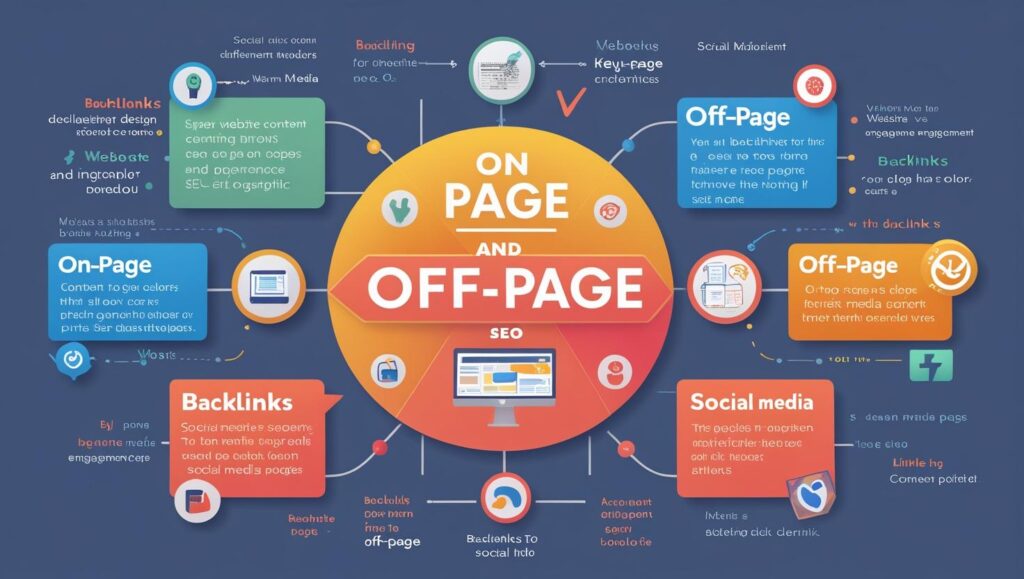
12. Final Thoughts and SEO Strategy for 2025
On-Page SEO vs Off-Page SEO In 2025, SEO is more than just keywords and backlinks. Google focuses on user intent, content quality, and website credibility.
If you’re just starting:
- Nail your on-page SEO first—it’s your foundation.
- Slowly build off-page credibility with real engagement.
- Track performance, tweak your strategy, and be patient.
Pro Tip:
Combine both strategies for the best results. For example, write an optimized blog post (on-page), then promote it via guest blogging and social media (off-page).
Want to Go Deeper?
Ask me for:
- An SEO checklist PDF
- Image suggestions for each SEO type
- Help with creating backlink outreach templates
I’m here to support your full SEO journey!
